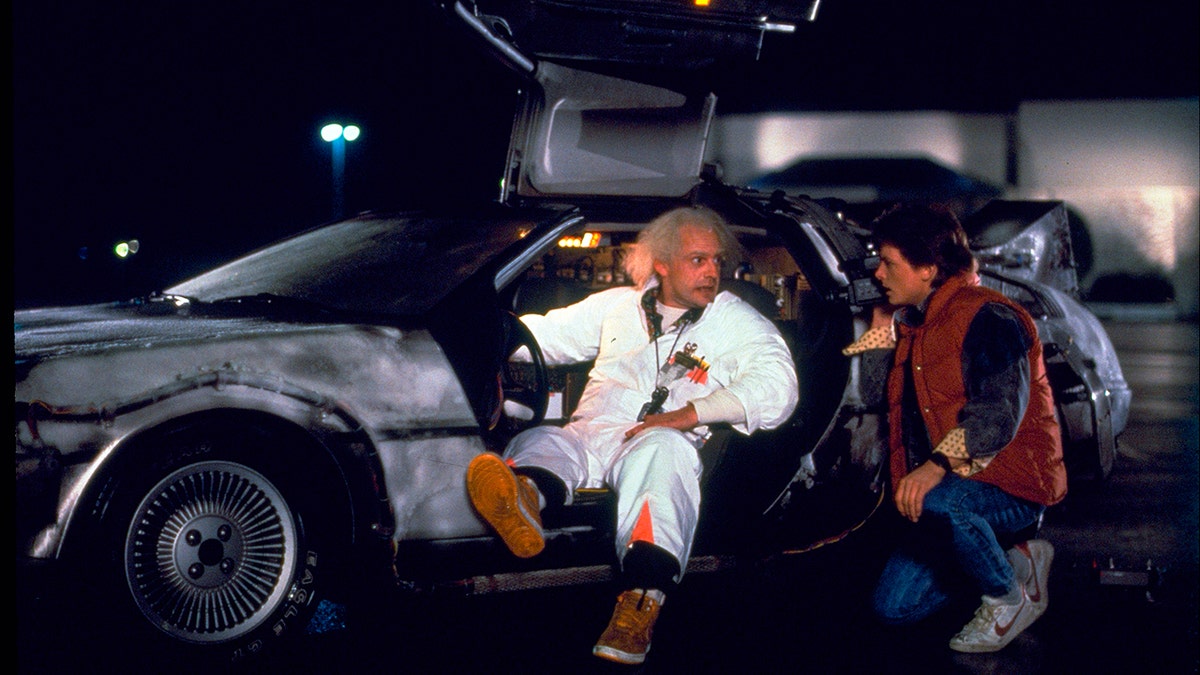Fox News Flash top headlines for September 26
Fox News Flash top headlines are here. Check out what's clicking on Foxnews.com.
Marty McFly and Doc Brown may have traveled back in time and slightly altered their futures in the "Back to the Future" series, but a newly published study suggests paradox-free time travel is "theoretically possible."
The research, published in Classical and Quantum Gravity, suggests that if time travel were possible and a person changed events in the past, the future would eventually correct itself so the paradox does not exist.
“The maths checks out – and the results are the stuff of science fiction,” the study's co-author, University of Queensland professor Fabio Costa, said in an interview with the university.

Christopher Lloyd, left, as Dr. Emmett Brown, and Michael J. Fox as Marty McFly in the 1985 film, "Back to the Future." (Universal Pictures Home Entertainment via AP)
TIME TRAVEL IS POSSIBLE – BUT ONLY IF YOU HAVE AN OBJECT WITH INFINITE MASS
“Say you traveled in time, in an attempt to stop COVID-19’s patient zero from being exposed to the virus," Costa continued. “However if you stopped that individual from becoming infected – that would eliminate the motivation for you to go back and stop the pandemic in the first place. This is a paradox – an inconsistency that often leads people to think that time travel cannot occur in our universe. Some physicists say it is possible, but logically it’s hard to accept because that would affect our freedom to make any arbitrary action. It would mean you can time travel, but you cannot do anything that would cause a paradox to occur.”
The paradox, or variation, described in the study is a "grandfather paradox." According to the study's abstract, this would allow the observer to "interact in such a way to prevent their own time travel," also known as killing their grandfather and thus preventing being born.
Although confusing, due in part to Einstein's theory of general relativity, which predicts the existence of closed time-like curves (CTCs), CTCs are possible, which would allow a person to interact with a past version of themselves and not cause harm to them in the future.
“In the coronavirus patient zero example, you might try and stop patient zero from becoming infected, but in doing so you would catch the virus and become patient zero, or someone else would,” University of Queensland student and study lead author Germain Tobar added. “No matter what you did, the salient events would just recalibrate around you."
Tobar continued: "This would mean that – no matter your actions - the pandemic would occur, giving your younger self the motivation to go back and stop it. Try as you might to create a paradox, the events will always adjust themselves, to avoid any inconsistency. The range of mathematical processes we discovered show that time travel with free will is logically possible in our universe without any paradox.”









































